 |
|||||||||||||||||
|---|---|---|---|---|---|---|---|---|---|---|---|---|---|---|---|---|---|
| MUSIC | MIXES | INFO | SIXX MIXX | PRESS | CHARTS | CONTACT | |||||||||||

Like most of America, my first inkling that Kanye had some new music to share with us was a May episode of Saturday Night Live. At the opening triple-time thuds of "Black Skinhead," I went "what the wha," and suspected that whatever he was about to do might end up atop my albums of the year list, again. Turns out, yup. I'll say more about those two songs below on the "best tracks" list, but of course "Skinhead"'s audacious sonic and lyrical assault is only one of the shocking, profound and ridiculous moments on an album so brimming with contradictions, its name aspires to sainthood while its cover art is basically non-existent. But before we get into the "is Kanye a genius or crazy or neither or both" thing, let's just talk about sounds.
m b v is no Third, its nearest analogue in terms of "surprise release by long dormant iconoclasts with fans who had almost stopped believing it was possible." Portishead took a risky stance of absolute reinvention, denying themselves even the comfort of any instruments they had previously used, and created a masterpiece. m b v is, well, a softer pleasure, more or less a (ridiculously-delayed) continuation of the same stuff the band was doing back in 1991, as if these goofballs just work on a completely different time scale than normal humans: "Of course you release an album and then the next one comes out 22 years later. (Blink blink). Is that weird?" Chief dingdong Kevin Sheilds in fact announced that the album was 3/4 done in 2007, so yeah, some quick math shows they actually released m b v two years ahead of schedule.
Last year, I had a teeny beef with my longtime pal Shawn Reynaldo, bigwig at electronic mag XLR8R, over his criticism of "Latch," the big 2012 single from the Brit brothers. He said it was a troubling sign of overly market-driven concerns from a band who had seemed committed to underground house, and I thought it was a surprising "next step" in their musical evolution. In an interview I did with them late last year, they flat-out claimed to not feel a part of any dance music "scene" at all, and admitted that they just want to make great pop songs. That would seem to confirm that I won that argument (ha!) but the brilliance of Disclosure is that on Settle, they managed to prove both me and Shawn right, perfectly balancing an astoundingly keen ear for Larry Heard-style underground house sounds and a nuanced way around a hit. The repetitive sample in "When a Fire Starts to Burn" shows they aren't afraid to get into a groove without worrying about bowing to radio programmers with verses and choruses, but the soaring "Help Me Lose My Mind" put London Grammar's angelic vocals to perfect use in one of the best pop moments of 2013. It stayed lodged at or near the top of the iTunes electronic charts all year, a sign that this isn't just a flavor-of-the-moment dance album, but a work that rewards repeat listenings.
It's a testament to the Vamps' greatness that I barely remember the sort of embarrassed reluctance lots of us hipsters had about liking them back in the day – they're yuppie white boys aping Afropop, ew, but dangit, "A-Punk" is so much fun. Nowadays, as Pitchfork points out, Vampire Weekend has changed, and the world has changed. The dividing lines between musical genres that made mashups so much fun back in the Oughties seem to be falling away (partially, I might hypothesize, thanks to those mashups, but I digress). From opener "Obvious Bicycle" there's both an adult seriousness and a nimble sprightliness, joining grand-question lyrics ("Is this the fate that half of the world has planned for me?") with an omnivorous musical joyfulness. If you tallied up the actual sounds on the record, Vampire Weekend might be an electronic band at this point; even on rollicking guitar track "Diane Young," they still indulge in some silly robotic vocal tuning. But it's a testament to their ability to portray what life is really like, here, now, in 2013, that you barely even notice.
I'll be honest: this is an album I'm still not sure I entirely have my head around, but at this point I'm willing to say that's probably a good thing. Like much of the world, I was in the middle of a lot of "what do you think about the Daft Punk album" conversations after its release back in May, as its utter avoidance of anything instantly accessible or even basically Daft Punk-y seemed to be a complete nose-thumb to the joyous promise of the already inescapable "Get Lucky." High concept spoken-word tributes to Italo-disco legends aren't exactly "One More Time," and the band themselves spoke of throwing out the laptops in a reaction against the excesses of current boosh-boosh EDM. So it's all the more amazing that it turns out to actually be really good, and with a few more catchy tunes up its sleeve, like "Lose Yourself to Dance" and "Doin It Right." It also turned out, on reflection, to have lots of seeds in old school Daft Punk: groovy "Beyond" a more organic "Voyager," and don't forget the Yacht Rock of "Nightvision." Those of you who want some EDM intensity can even look to the climax of "Contact," which grabs the epic distorted banger trophy back from Justice. Do I sometimes skip the dippy "Fragments of Time"? Sure, okay. But there was little that made music more exciting (and worth talking about) this year than Daft Punk.
More than most artists, critical appraisal of Boards albums seems to take years. Their first masterpiece, Music Has the Right to Children, took six years and a rerelease for Pitchfork to correctly give it the (today almost unimaginable) perfect 10 score. Gargantuan expectations led to a sort of letdown effect with The Campfire Headphase, which experimented with (shock!) guitars, but in retrospect seems like the band's most joyous, wistful moment. Who knows what we might think about Tomorrow's Harvest in 2018, but I'll admit its dark, sinister, possibly apocalyptic tone was also a bit of a tough sell at first. The ridiculously elaborate and totally creepy publicity stunt leadup was both awe-inspiring and kind of reminded me of the TV show "Lost," whose immense complexity and foreboding turned out to mean diddly-squat. Could Boards of Canada be spinning a whole lot of spooky nothing? More importantly, is it even, well, enjoyable to listen to? On an airplane is my favorite place to enjoy Boards of Canada, in fact it was long flights spent returning again and again to Children that I came to consciousness of my love for BoC – but "Reach for the Dead" is a tough sell when you're 30,000 feet in the air and you'd rather not think about the radiation you just endured so the TSA could look at your junk. With Harvest, I dealt with the issue by usually starting the album around track 6 or 8, which, more or less, got the super scary parts out of the way. But the more I thought of the album as a soundtrack to a lost sci-fi film or a sort of retro-apocalism, the more I backed up to Track 1 and learned to love the album as a whole. Of course, there are awesome moments like the sudden tonal shift in "Palace Posy," where the chords suddenly soar and distorted blips of what might be voices seem to sing along, as well as the creepy-kids-show loop of "Nothing is Real." I have a suspicion that in 5 years we'll be thinking, "wow, we really didn't realize how great Tomorrow's Harvest was," so for now, it's at #6.
Now here's a band with chutzpah. They made it very clear that with this album, they had zero concern for, well, us; they were making music without any consideration for its palatability. What's funny is that a lot of it turned out to be really fun. Opener "A Tooth for an Eye"'s 6/8 rhythm and howling Bjorky vocals actually added up to a kind of ecstatic joyfulness, and "Full of Fire" is hypnotic and groovy. There's a sort of Kate Bushy, M.I.A.-esque Afro-pop-via-art-student style at work here in places, although the scrapey, echoey 10 minutes of the hilariously-titled "Fracking Fluid Injection" isn't going to make anybody dance except maybe, um, Exxon. But for me, whether it's Kanye or the Knife, shaking the habitual, as an agenda, is really what art, and life, is all about.
QOTSA, like much of Rock (or should I say Rawk) had seemed kind of dead these days, or at least comatose, so much so that even I, Biggest Queens of the Stone Age Fan In the Universe, had kind of lost track of them. Where was Josh Homme, anyway? In Them Crooked Vultures, or something? Well, it turns out Mr. Homme was sort of experiencing a real-life crisis, actually coming close to death due to a MRSA infection, and he spent months recovering, unsure if he would ever make music again. It's beyond cliché to say it, but …Like Clockwork is the sound of a band revived and revitalized, back to exorcising their demons with ridiculously complex psychedelia and strutting glam-rock. I feel like I haven't listened to music like this in a while, and this album makes me think that I've been missing out.
Back in the early '90s, a friend returning from London brought me a cassette tape they had recorded of a couple of the finest pirate radio stations, Kool and Pulse FM. On the label was just scribbled "Hardcore," the name of this bubbling, ravey, psychotically fast and completely bonkers genre of music, and I was obsessed. I loved the rollicking breakbeat and the sped-up samples of rave hits, the DJs' hyperspeed crossfades, and the complete abandonment of things like tone and chords and stuff. As we now know, kiddies, this stuff eventually mutated into jungle and then drum 'n' bass, and I liked all that, sure, but compared to the freewheeling circus of hardcore, jungle's reggae vibe seemed retro, and drum 'n' bass needlessly dark, and my favorite records in those genres were always the ones that reminded me the most of the ecstasy of hardcore. Veteran DJ Paul Woolford apparently feels the same way, and on Soul Music, he pays tribute to this ridiculously creative time without resorting to imitation or cliché. The hoover and breakbeat on "Ride VIP" are recognizable tropes, for instance, but here they sound new, just like the staccato snares on "Soundboy Killer." The album's title is a pretty clear hint as to why: it seems to acknowledge the current zeitgeist of soulful, spacey house, and there's an openness and clarity in these songs that prevent them from being silly or cartoonish. Most amazingly, it doesn't make me feel old.
Apparently this Argentinian musician used to be a TV star or something, but whatever she was, she now seems fully committed to experimental musicianship. In a Year Without a Radiohead, or at least without a Radiohead making guitar music, Ms. Molina stakes a claim on the sort of strange, entrancing riffs heard on albums like Amnesiac, and owns them. Opener "Eras" appears to be in 7/8 time (take that, Thom Yorke!) and maintains a gripping tension with minimal instrumentation and Molina's deadpan vocals. I have no idea what she's singing about, but her voice has the sort of loungey clarity of Astrud Gilberto, the quiet intensity of Jose Gonzalez. While there's much on here that's, well, pretty, it's never precious—weird blips and scrapes abound, along with surprising melodic turns and unexpected notes. It's carefully constructed minimalism, the warm southern-hemisphere equivalent of Little Dragon's Ritual Union. 11. Classixx - Hanging Gardens 12. James Holden - The Inheritors 13. The National - Trouble Will Find Me 14. Arcade Fire - Reflektor 15. Ian Pooley - What I Do 16. Jon Hopkins - Immunity 17. Laurel Halo - Chance of Rain 18. Bombino - Nomad 19. DJ Rashad - Double Cup 20. Daniel Avery - Drone Logic 
After the surprise teaser was played on the big screens at Coachella (and immediately disseminated by wobbly phone-cam and social media to all corners of the globe), I joked with Miles the DJ that "Get Lucky" wasn't destined to be song of the year—the 2-minute Coachella teaser clip itself was song of the year. In a way, I was sort of right: the section featured in that clip, the transition from Pharrell to robots, is the shiver-inducing highlight of the whole song, the fulcrum of the whole idea, in fact, and when the entire song was released, it was basically an extended mix of that. (I'm reminded of the Residents' Commercial Album which instructed that the minute-long tracks should be played three times in a row by listeners to make them into pop songs). They never even ended up releasing the whole video, crazily, almost like they were admitting these two minutes are all you need.
While the production credits on "Black Skinhead" are movie-length (Daft Punk, Gesaffelstein, Brodinski, No ID…) the song itself is laser-focused, a menacing, clever nod to Depeche Mode's "Personal Jesus," married to the vocal histrionics of Yoko Ono or something. Twisted and angry both sonically and lyrically, it was easily the most radical three minutes of music to air on SNL in a long while, if ever, and its American chart debut at #69 was as high as this bonkers song got. Fast forward a couple months and its hypnotic hummed breakdown and galloping beat are soundtracking (naturally) a cell phone commercial. Sure, that adds another layer of irony to the whole "fuck corporations" thing, but I was personally kind of amazed how good it sounds, and how, well, normal. I think it proves that inside Kanye's maelstrom of ego and persecution and desperation to push the envelope, there's a genius for plain old great songs.
While I have to admit to skipping a few tracks when listening to the National's still-very-good Trouble Will Find Me (looking at you, "I Need My Girl,"), "Sea of Love" proved they can still make profound and restrained-yet-soaring odes to the way heartbreak, as you get older, calcifies into a cold remorse, mixed with an odd nostalgia for a time you felt anything so intensely. The insistent snare seems to be leading to a resolution that never comes, then the song seems to pause, exhausted, to realize, "if I stay here, trouble will find me." And then, the awesome, awful line, "Sorry I hurt you but/They say love is a virtue/Don't they?" The emotional power comes not in typical pop song victimhood or victory, but in the acknowledgment of love's overwhelming, infinite complexity, a sea whose waves can bring us together and rip us apart with no mercy.
Sometimes a pop song seems to perfectly straddle the line between greatness and, uh, complete shit, and for a while this year, I kind of thought this song might be the latter. Was its '80s R&B "Sexual Healing"-style synth-pop balladry a cynical corporate record label committee decision? Was its sweetly awkward phrasing twee self-conscious cutesiness? Well, I think what brought me around was one small thing: the hypnotic little breathy "ah" notes that pop up on alternate measures. I love those. The closest analogue I can think of are little sounds in Lisa Lisa & Cult Jam's "I Wonder If I Take You Home," another delicate near-masterpiece, and on reflection, a question for which this song could be the answer. Removed from the Drake Phenomenon, the song is the best nu-disco track of the year, simple on the surface but deep as a Raymond Carver short story (in fact I'm surprised the title isn't already a Raymond Carver short story), powerful for what it leaves unsaid.
While this song wins the prize for the weirdest song of the year which can be successfully recognized as actual music, let's remember that weirdness has always been a part of freestyle. "Let the Music Play," for instance, opened with a buzzing, warping alarm tone and an electronic whip-crack, then constructed its infectious groove out of squelching bass and tinkling glass chords. Of course, there's weird and then there's weeeeird: "Bipp" is like Stacey Q went past the Event Horizon and came back wrong, missing drums and stable tones and the idea that notes should have some relation to one another. Also a disembodied candy-colored waterslide on the cover. So, um, "Sophie," you say you can make me feel better, you alien monster robot creature with the face of a cute little Miami freestyle singer but also tentacles and whizzing metal blades, who chose a human moniker because your real name, once pronounced aloud, would instantly shatter my cranium? Gulp… okay.
I'm dumbfounded at the maturity and almost instinctual understanding of the mechanics of classic house music in these wee Brits, who blasted single after astonishing single at us in 2012. This, the first taste of their album in 2013, was an exciting statement of intent, proof they were still brimming with creativity and charm. Defined by its insistent, stacatto runup bassline, "White Noise" managed to be high energy without being dopey or even that loud. I believe the technical term is a "jam."
Yes, ties are silly in lists like these, but I've decided I'm going to consider this near-20 minutes of material an LCD Soundsystem album, because I'm still in denial about that project's end. So, one at a time: "Reflektor" took the grand intentions of Arcade Fire and expanded them, stretched them out over a groove that was both spooky and funky, and seemed to add thrilling coda onto thrilling coda. Murphy's take on "Love is Lost" takes the intense emotional tone and pushes it even further, with an insistent Gus Gus-like electro stutter and audacious moves like a breakdown for applause and a sample of "Ashes to Ashes." They both show Murphy still operating at the peak of his powers.
Pitchfork features this song at #2 on their best songs list, and they're mostly right, but I think the sheer fact that "Slaves" is at least theoretically recognizable as hip hop gives the edge to the blindingly original "Skinhead." Of course, this was easily the best hip hop song of the year. Oddly similarly to Sophie, the track dismisses drums almost entirely, just relying on minimal yet somehow symphonic stabs. His righteous anger here is inextricable from his ego: even someone rising as high as Kanye hits a glass ceiling.
2013 was a great year for deep house, so much so that it seemed almost to pull the center of dance music away from booshy EDM. There were a ton of great songs, but no more sublime, soulful 5 minutes of music this year than "So Good To Me," whose Marvin Gaye vocal seemed meant for this delicate, snapping groove.
Let's take a quick trip back to 1997. Jungle had been a thing for years, bubbling around and stuff, with kids like me dancing to it in little Haight Street bars and a thriving UK underground scene. Then Roni Size released "Brown Paper Bag" and everybody did a Keanu Reeves "whoa." "Bag" seemed to encapsulate jungle's accomplishments, and at the same time, push them into a whole new direction, saying "hey, look what you can do." Similarly, footwork is well established in Chicago, but this track seems like a gauntlet thrown down at all of dance and hip hop music: look what's possible, look what you can achieve if you totally don't—and totally do—give a fuck. 11. Moderat - "Bad Kingdom" 12. Urban Cone - "Deja Vu" (Oliver Nelson Remix) 13. A$AP Rocky feat. 2 Chainz, Drake and Kendrick Lamar - "Fuckin' Problems" 14. Todd Terje – "Strandbar (Disko)" 15. Roosevelt – "Elliott" 16. Classixx - "All You're Waiting For" 17. A$AP Ferg – "Shabba" 18. Jon Hopkins - "Open Eye Signal" 19. The Knife - "Tooth for an Eye" 20. Ian Pooley feat. Hogni Egilsson – "1983" Honorable Mentions:
|
|
||||||||||||||||||||||||||||||||||||||||||||||||||||||||||||||||||||||||||||||||||

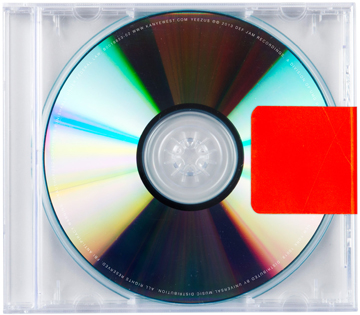



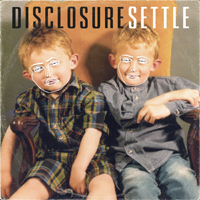

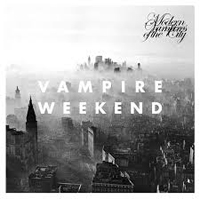





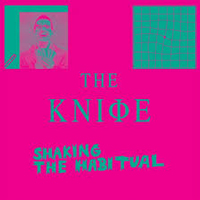



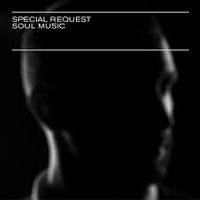



 1. Tame Impala - Lonerism
1. Tame Impala - Lonerism 1. Grimes - Oblivion
1. Grimes - Oblivion 1. PJ Harvey - Let England Shake
1. PJ Harvey - Let England Shake 1. Gil Scott Heron & Jamie xx - I'll Take Care of You
1. Gil Scott Heron & Jamie xx - I'll Take Care of You 1. KANYE WEST - My Beautiful Dark Twisted Fantasy
1. KANYE WEST - My Beautiful Dark Twisted Fantasy 1. LCD SOUNDSYSTEM - Dance Yrself Clean
1. LCD SOUNDSYSTEM - Dance Yrself Clean 1. ANIMAL COLLECTIVE – Merriweather Post Pavillion
1. ANIMAL COLLECTIVE – Merriweather Post Pavillion
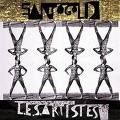
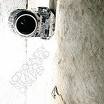 1. LCD SOUNDSYSTEM Sound of Silver
1. LCD SOUNDSYSTEM Sound of Silver 1. Rihanna – "Umbrella"
1. Rihanna – "Umbrella"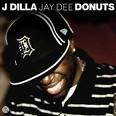 1. J DILLA Donuts
1. J DILLA Donuts 1. GNARLS BARKLEY "Crazy"
1. GNARLS BARKLEY "Crazy" 1. M.I.A. Arular
1. M.I.A. Arular 1. GORILLAZ "Feel Good Inc."
1. GORILLAZ "Feel Good Inc."
 1. FRANZ FERDINAND "Take Me Out"
1. FRANZ FERDINAND "Take Me Out"  1. THE WHITE STRIPES Elephant
1. THE WHITE STRIPES Elephant 1. OUTKAST "Hey Ya"
1. OUTKAST "Hey Ya" 1. THE STREETS Original Pirate Material
1. THE STREETS Original Pirate Material 1. THE WHITE STRIPES "Fell in Love with a Girl"
1. THE WHITE STRIPES "Fell in Love with a Girl" 1. Low Things We Lost in the Fire
1. Low Things We Lost in the Fire  1. Missy Elliott - Get Ur Freak On
1. Missy Elliott - Get Ur Freak On 1. GRANDADDY The Sophtware Slump
1. GRANDADDY The Sophtware Slump 1. Zombie Nation
1. Zombie Nation  1. The Magnetic Fields 69 Love Songs
1. The Magnetic Fields 69 Love Songs

